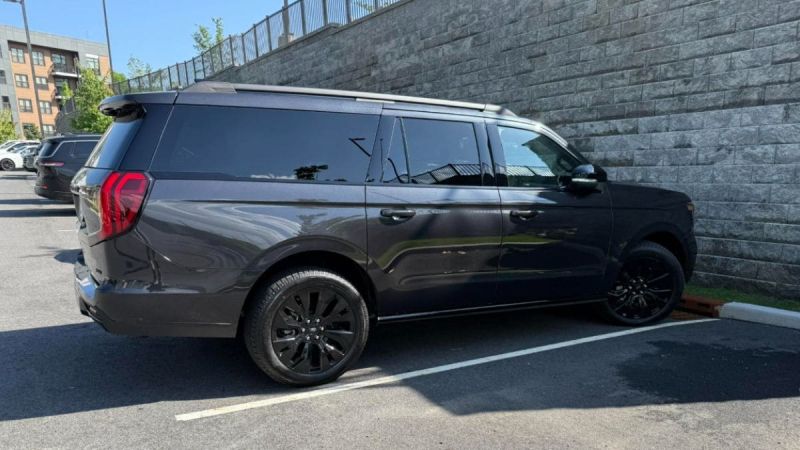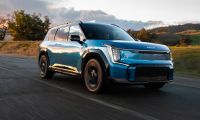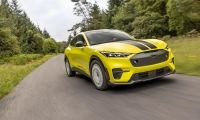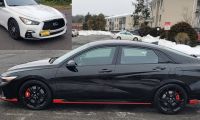It's humbling realizing the complaints you once rolled your eyes at are actually pretty valid, especially when they cost you tens of thousands of dollars and a major vehicle swap. That’s the kind of moment Kevin Livingston found himself in recently, after switching from his 2024 Toyota Sequoia Platinum to a 2025 Ford Expedition Max. I found his story in the "2022-2026 Toyota Sequoia" group on Facebook this evening, and what started out as minor annoyances grew into dealbreakers. His decision sheds light on why some buyers are rethinking their loyalty to Toyota’s full-size SUV lineup. Here's his story:
"I traded my ‘24 Sequoia Platinum today for a ‘25 Ford Expedition Max. Things I never thought would bother me before buying it just was too much. Highway road noise, 2nd row seats not adjustable, and the small gas tank (I laughed at people who said this before I bought it). Not AWD, no space behind the third row, smaller interior than expected, and lastly the ride quality. It was like driving a boat, and while that’s expected to a point with family haulers, I consistently felt the body roll to the point I thought it was tipping over. Lots more negatives on it but I’ll stop there. So far, the expedition is great with about $1,000 more MSRP than my ‘24. I put 9,500 miles on the Toyota. Only posting this to help other people that may be in the same position."
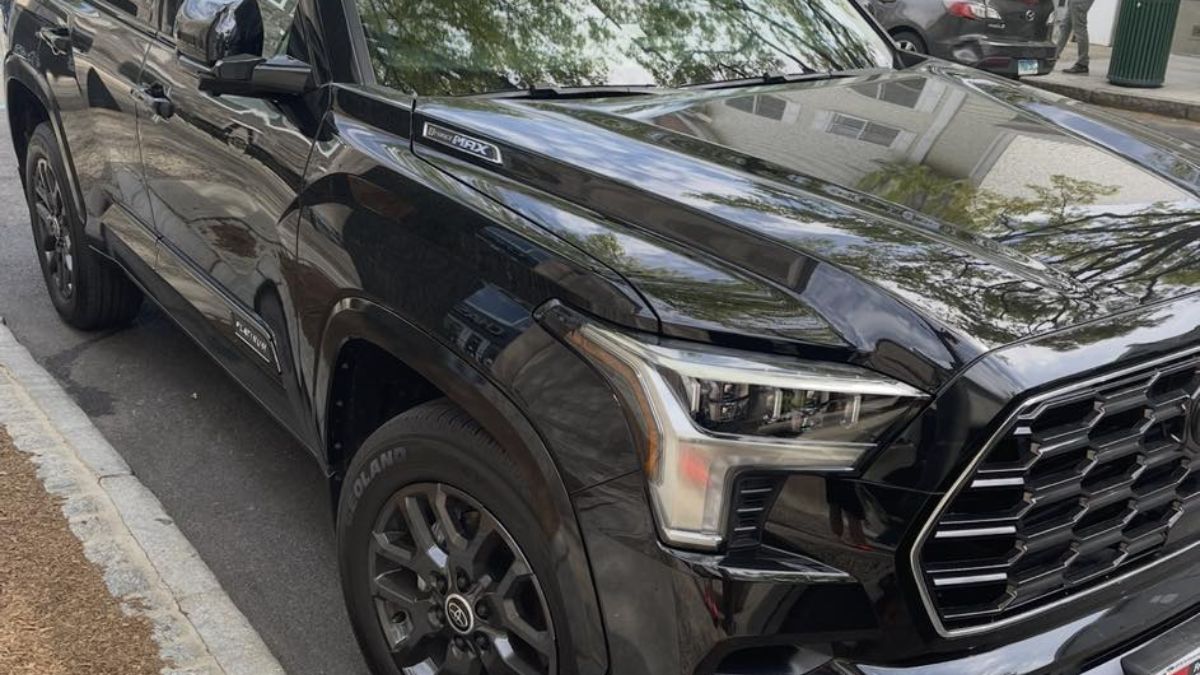
Other Owners Relate
Kevin’s post sparked a conversation in the group, and it’s clear he isn’t alone in his frustrations. The Sequoia’s redesign brought bold styling and a powerful twin-turbo hybrid V6, but with that came some tradeoffs. Owners like Kevin expected top-tier comfort and utility in a full-size SUV priced in the high five figure range, but what they got instead was a noisy cabin, a stiff ride, and limited cargo flexibility.
Several of these pain points have been echoed in other owner experiences, particularly the issue of poor towing performance relative to expectations. One frustrated owner even admitted that their Toyota Sequoia TRD Pro struggled to tow a 6,000 lb camper, despite strong specs on paper.
And it’s not just towing. In daily use, many find the Sequoia’s new suspension setup jittery and unpredictable. As Simon Strother put it, “The ride on these new Sequoias and Tundras are terrible. They just don't stop moving.” This constant floating may be tolerable for short drives, but on long road trips or daily commutes, it can quickly become exhausting.
Kevin’s move to the 2025 Expedition Max wasn’t just about switching brands, but it was about regaining confidence in a vehicle’s practicality. With a more comfortable ride, added interior space, and a more traditional driving feel, the Expedition has earned its place in many garages as a go-to family hauler. While some buyers may hesitate due to Ford’s perceived reliability concerns, others find that the day-to-day benefits outweigh the risks.
Take Kerry Osborne’s perspective: “My biggest gripe with the Sequoia is that the fuel tank and the rear storage isn’t great. My biggest gripe with the Expedition is that it’s a Ford and that means low quality. The Expedition Max is more comparable to the Yukon XL than the Sequoia.”
That comparison brings up a useful point. The Expedition Max offers dimensions and cargo space that arguably place it closer to GM’s larger SUVs. It’s also worth noting that despite Ford’s ongoing recalls, including nearly 275,000 Expeditions and Navigators for potential brake problems, the brand has worked to provide more refined driving characteristics and a better user experience in recent iterations of its SUVs.
Kevin’s story also prompted some owners to reflect on their own decisions. Richard Fergeson, for instance, mentioned, “We actually have both. I wouldn’t have the Sequoia as our only family vehicle with four kids, but it works for me though. My wife’s King Ranch seats are way more comfortable.”
That comment illustrates a common compromise: the Sequoia may be passable as a secondary vehicle or a personal hauler, but when it comes to full-time family duty with multiple passengers and gear, comfort and ergonomics matter too. And in that regard, many say the Expedition wins.
Still, not everyone is looking to jump ship. Robert Khachatoorians offered a counterpoint: “We did the opposite. The resale with the Ford is not as good as the Toyota sadly. I also have a Ford F-150 and we love it. The gas tank is a bit small but we make it work.”
Toyota’s legendary resale value is one thing Ford has historically struggled to match. Even with better ride comfort or more interior space, long-term ownership costs, depreciation, and service consistency still matter. I mean, even my 2012 Camry has incredible resale value after all this time. This might be why some buyers hesitate to abandon the Toyota badge altogether, even if their current experience hasn’t been stellar.
What’s Happening with the Sequoia Today
Toyota aimed to push the Sequoia into a premium space with its latest redesign, particularly the 2025 Sequoia Capstone, an $85,000 luxury SUV loaded with tech and upscale finishes. But many are starting to question whether the upgrades justify the price, especially when the basics like comfort, space, and efficiency still fall somewhat short.
The Sequoia’s fuel range has become one of its most consistent criticisms. While the hybrid powertrain is strong in theory, it doesn’t necessarily translate to exceptional MPG or long-distance cruising. And with a relatively small fuel tank, it feels like a step backward for many owners.
This growing sense of disappointment has even pushed some shoppers to cross-shop other Toyota models or consider whether vehicles like the 2024 Toyota 4Runner TRD Pro Terra rank better than the Sequoia in terms of off-road appeal, comfort, or usability.
This story really highlights the difference between liking a vehicle on paper and living with it day to day. The 2024 Sequoia sounds impressive in a press release with its hybrid drivetrain, bold design, and modern interior. But when you actually live with one, especially for road trips, hauling, or the multi-kid life, the cracks in the experience become hard to ignore for some.
There’s also something to be said about how brand loyalty can sometimes blind us to shortcomings until we see another perspective. In this case, Kevin’s journey from mocking complaints to validating them firsthand is a great example. It reminds me how valuable community discussion can be, and how crucial it is to take real-world ownership feedback seriously before jumping into an expensive commitment.
Takeaways for Future Shoppers
- Don’t dismiss complaints too quickly as they might be your own later. What seems like nitpicking in online forums can become daily frustrations once you own the vehicle.
- Think beyond the spec sheet. Just because an SUV looks great in marketing or reviews doesn’t mean it will fit your family’s real-world needs. Ride quality, seat adjustability, and usable cargo space are just as important as horsepower figures.
- Resale value is a factor, but it’s not the only one. Ford might not hold its value like Toyota, but a better daily experience might still make it worth the switch for some families.
- Don’t assume newer means better. The Sequoia’s updates may have pushed it forward in some ways, but many owners feel Toyota’s changes to the 2024 Tundra and 2025 Sequoia have made comfort and usability worse in others.
- Use online owner forums as a tool and not just entertainment. Stories like Kevin’s prove how useful community feedback can be when weighing a big purchase.
Let’s Hear from You
Have you ever ignored online complaints about a car, only to find out later they were true for you too?
And if you own either a new Toyota Sequoia or a Ford Expedition, what’s one feature you absolutely love, and one you wish the manufacturer would fix?
I'd love to hear your opinions in the comments below.
Aram Krajekian is a young automotive journalist bringing a fresh perspective to his coverage of the evolving automotive landscape. Follow Aram on X and LinkedIn for daily news coverage about cars.
Image Sources: The “2022-2026 Toyota Sequoia” public Facebook group.
Set as google preferred source


